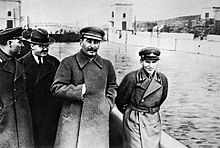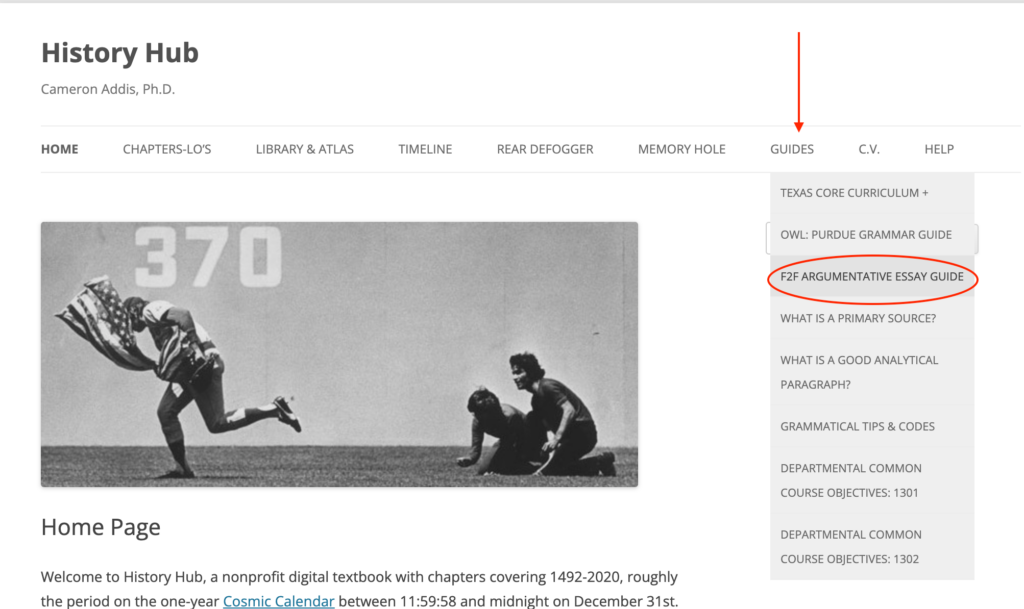“We deal with the truth as the cook deals with meat and vegetables”
— Eric Hoffer, Notebook, 1954

 This page is optional for distance learning students but required for F2F (lecture class) students to choose a topic for their argumentative essays. It’s named for the “Big Brother” (government) information shredder in George Orwell’s dystopian novel, Nineteen Eighty-Four (1949). Orwell wrote that “who controls the past controls the future. Who controls the present controls the past.” But our concern here isn’t government censorship of the sort depicted in that book or in these photos from Stalinist Russia of NKVD head-turned-traitor Nikolai Yezhov becoming an “unperson” after being tortured and killed. After all, while conspiracy theorists argue otherwise, we don’t really live in a totalitarian state. Instead, our concern is self-censorship: how citizens across the political spectrum pick and choose which parts of history they want to remember (cherry-pick) and which to leave out (flush down the memory hole), clouding context in the process. More often than not, such selective memory is subconscious and attributed only to one’s adversaries. Leftist historian Howard Zinn, for instance, said that the “chief problem in historical honesty isn’t outright lying,” but rather the “omission or de-emphasis of important data.” One could argue that his own work proves that point better than he may have intended, but some selection bias and subjectivity are inescapable for everyone.
This page is optional for distance learning students but required for F2F (lecture class) students to choose a topic for their argumentative essays. It’s named for the “Big Brother” (government) information shredder in George Orwell’s dystopian novel, Nineteen Eighty-Four (1949). Orwell wrote that “who controls the past controls the future. Who controls the present controls the past.” But our concern here isn’t government censorship of the sort depicted in that book or in these photos from Stalinist Russia of NKVD head-turned-traitor Nikolai Yezhov becoming an “unperson” after being tortured and killed. After all, while conspiracy theorists argue otherwise, we don’t really live in a totalitarian state. Instead, our concern is self-censorship: how citizens across the political spectrum pick and choose which parts of history they want to remember (cherry-pick) and which to leave out (flush down the memory hole), clouding context in the process. More often than not, such selective memory is subconscious and attributed only to one’s adversaries. Leftist historian Howard Zinn, for instance, said that the “chief problem in historical honesty isn’t outright lying,” but rather the “omission or de-emphasis of important data.” One could argue that his own work proves that point better than he may have intended, but some selection bias and subjectivity are inescapable for everyone.
Such spin-doctoring can take the form of state censorship or propaganda — even democracies with Freedom of Information Acts do their share of redacting with a black magic marker — but, by and large, unlike the totalitarian regime depicted in Orwell’s novel, citizens in democracies mostly shred things in their own memory hole and pick their own cherries. Americans shred and pick in books, posts, articles, blogs, editorials, exhibits, commemorations and celebrations, campaign speeches, re-enactments, and arguments at work “around the water cooler” or home around the dinner table. When Henry Ford complained that “history was bunk,” he didn’t mean that it was boring or unimportant. The problem was that it was “being rewritten every year from a new point of view…so how can anyone claim to know the truth about history?” Such arguments are inescapable and important. Even among people who think they’re not interested in history, their attitudes and beliefs are shaped subconsciously by what they think has gone before. After all, what else do we have to go on?
 Historian John Fairbank once described history as a grab bag people pull from to advance their agendas. We’re here to get to the bottom of how this selective sampling, “cafeteria” approach to history informs narratives used to support various agendas. The History Hub-Memory Hole is where cherry-picked history comes to die. The list below directs you to interesting and/or controversial topics, many with subtexts informing present-day controversies. The goal here isn’t to avoid contested issues but rather to debate issues that informed people disagree on respectfully and intelligently. Former president George W. Bush put it best when he said, “A great nation does not hide from its history. It faces its flaws and corrects them.” We may not always agree on what our flaws are or how to correct them, but we can do a better job debating respectfully and intelligently.
Historian John Fairbank once described history as a grab bag people pull from to advance their agendas. We’re here to get to the bottom of how this selective sampling, “cafeteria” approach to history informs narratives used to support various agendas. The History Hub-Memory Hole is where cherry-picked history comes to die. The list below directs you to interesting and/or controversial topics, many with subtexts informing present-day controversies. The goal here isn’t to avoid contested issues but rather to debate issues that informed people disagree on respectfully and intelligently. Former president George W. Bush put it best when he said, “A great nation does not hide from its history. It faces its flaws and corrects them.” We may not always agree on what our flaws are or how to correct them, but we can do a better job debating respectfully and intelligently.
The topics below are a springboard that F2F students can use for the Argumentative Essay writing assignment. Students in distance learning sections can tap into the links below to get ideas for books they may want to review. Those of you in the F2F courses will pick a contested historical subject from the list below and explain why it remains controversial and relevant to current debates in your argumentative essay, this course’s term paper, the instructions for which can be found in the Argumentative Essay Guide above under Syllabi-Guides. In the spirit of Orwell’s Memory Hole, an organizing theme of your paper will be to analyze which points interested parties emphasize and/or play down and why. What are they flushing and what are they cherry-picking? How do they utilize common argumentative techniques or commit logical fallacies? For help on these, consult the Rear Defogger page above. In my follow-up question to your essay, I may redirect you to the Rear Defogger, a fact-checking site (Politifact or Punditfact), Flipside Archives, Intelligence² Debates, or OpenSecrets.org to “follow the money” like any good detective, or might have you do a quick search into one of the sources or authors that you cite in your paper.
Research what people have written who’ve done real research into the topic. What are the main primary sources these writers interpret and argue about? Visit the ACC library here at Highland Campus and talk a reference librarian. Utilize ACC’s excellent library staff to find books or articles (e.g., JSTOR) pertaining to your topic. If you find a book, make good use of the index in the back. Your next stop will be our History Hub Library (link above), where you can look at archives of periodicals, textbooks, and data from the reference desk. It includes various left- and right-leaning textbooks and magazine/periodicals. Use their search functions to see if you can find anything on your topic. If any do, get a feel for how historians argue the issue. Also, consult the History Hub Library’s Topical Links to see if your topic has other sites related to it. Finally, you can research online throughout this process, but do it wisely. Cross-check your online source’s reputation at Media Bias/Fact Check. Remember that, often, the goal of Internet sites is merely to generate advertising revenue by maximizing clicks, not education or accuracy. There’s good stuff out there, but use websites ending in .org, .gov, .net or .edu, not .com. or respected outlets. Consult the bibliography and footnotes in Wikipedia pages related to your topic. The Wiki article above those is likely sound enough, but doesn’t constitute real research. Dig deep enough to read actual specialists and don’t assume that “experts” are wrong or part of some conspiracy. There’s more detail on research in the Argumentative Essay Guide.
As you run your cursor over the topics below you’ll notice they are linked to articles or encyclopedia entries. If there are links to the right of the topic, take advantage of those to learn the parameters of the debate. These initial links (when available) are just intended as a starting off point; they are not comprehensive in any way. There will be some teething issues on the more recent 1302 topics but I can work with you. You can also ask me for relevant authors. You’ll marshal your own argument and take a measured but strong stance on the given issue. You can come down on either side or somewhere in between if you want to argue that the question I’ve presented is a false dichotomy. The key is to back up what you think with good arguments and analyze what others play down/ignore (flush) or emphasize (cherry-pick). Use the opening paragraph to explain the debate with the best arguments on each side. Then, present your evidence, with special attention paid to primary sources, also just as a lawyer would in the courtroom. Avoid hearsay, smearing, misrepresenting others’ views, and the sort of general spazzing out that characterizes much of modern cable, radio, social media, and blogging across the political spectrum. Keep your argument historical; don’t let your paper degenerate into mere commentary on present-day opinions. You will not be graded based on which side you choose of any debate, but rather the soundness of your argument.
1301
Who Were the First Americans?
This Question Concerns Paleo-Americans, Not Columbus, Vikings, etc.
Texas A&M Center for the Study of the First Americans & Jennifer Raff Forbes Blog
Why Did the Castilian Crown Arrest and Jail Christopher Columbus? De Seno vs. Katz
ACC Library American History Database > Christopher Columbus > Primary Sources
Bartolomé de Las Casas Describes the Exploitation of Indigenous Peoples (American Yawp Reader)
“Document Reveals Columbus As Tyrant of the Caribbean” (Guardian, 8.7.06)
In Spanish: La caída de Cristóbal Colón: El juicio de Bobadilla (Excerpts, JSTOR w. ACC ID)
In Spanish: Review of Consuelo Varela’s Book About Bobadilla’s Report (JSTOR w. ACC ID)
Where Does Bartolomé de Las Casas Fit Into Abolitionist History? The Man, The Issues
Did Black Slavery & Bacon’s Rebellion Help Expand White Democracy in America?
A History of Bacon’s Rebellion in Six [Primary] Sources (Jamestown-Yorktown Federation)
Russell McClintock, “Overview: Slavery & Freedom in Early Virginia” (InfoBase w. ACC ID)
Virginia Laws Concerning African Americans (InfoBase w. ACC ID)
Edmund Morgan, “Slavery & Freedom: The American Paradox” (JSTOR w. ACC ID)
What Motivates and Sustains the Pseudo-Historical Irish Slavery Meme? (NYT w. ACC ID)
Review of Jordan & Walsh’s White Cargo (NYT)
Were Pirates Proto-republicans or Just Rapacious Criminals (or both)?
Was John Quelch Guilty? Leeson
Tap Colin Woodard, A Republic of Pirates (Google Books)
Will the Real Thomas Paine Please Stand Up? Ian Ruskin v. Bob Basso (I-II) Watch Plays & Read Paine
= How Accurate Are Liberals & Conservatives At Enlisting Thomas Paine For Modern Causes?
Whose Depiction Of Paine Is More Accurate: Ruskin’s or Basso’s?
Common Sense (Google Books); Synopses of Age of Reason and Rights of Man
Will the Real Adam Smith Please Stand Up? Glory Liu & Michael Boskin (Hoover Institute)
= How Accurate Are Liberals & Conservatives At Enlisting Adam Smith For Modern Causes?
Read Book IV of The Wealth Of Nations (ACC Library PDF)
Were the Colonies Worse Off Under British Rule ca. 1770 Than Today’s U.S. Territories?
Did the Iroquois League Impact the Albany Plan, Articles or Constitution?Mann Ballatore
Bruce Johansen, “History & the Burden of Proof” (JSTOR, ACC EID Required)
Elizabeth Tooker, “Rejoinder to Johansen” (JSTOR, ACC EID Required)
How Revolutionary Was the American Revolution? Define Revolutionary
Read/Tap Gordon Wood’s Radicalism of the American Revolution Bk Review
Was the United States Legally Established as a Christian Nation? * John Fea
Library of Congress Primary Sources: Religion & the Founding of the American Republic
The Founding Fathers & the Debate Over Religion in Revolutionary America (Oxford Online)
Read/Tap Into John Fea’s Was America Founded As A Christian Nation?
How Justified Was Loyalism During the American Revolution?*
Read/Tap Into Maya Jasanoff’s Liberty’s Exiles
Was Federalism (a Nation w. States) the Best Setup?
Should The States Have Completely United Or Arranged Themselves Like The Modern EU?
Guns: What Do the Federalist Papers Teach Us About the Second Amendment? Madison #46, Hamilton #29
Guns: How Do Militia Figure Into the 2nd Amendment?** Related Intelligence² Debate
Guns: How Has Our Reading of the 2nd Amendment Evolved?*** Related Intelligence² Debate
A Key Primary Source: Madison’s Federalist 46 (Publius)
For Either Gun Topic, Read/Tap Into Saul Cornell’s A Well-Regulated Militia (ACC Library PDF)
Cornell & Nathan DeDino, “A Well-Regulated Right: Early American Origins of Gun Control (Fordam Law)
Other Good Sources Include Robert Shalhope, Adam Winkler, Michael Waldman & Carl Bogus (Despite Name)
Do the First Amendment Rights to Freedom of Speech and Press Authorize Disinformation?
Did George Washington Overreact Against the Whiskey Rebels? Compare to Other Revolts
Read/Tap Into William Hogeland’s Whiskey Rebellion (ACC Library) OR
Read/Tap Into Thomas Slaughter’s The Whiskey Rebellion (ACC Library)
Was Aaron Burr Guilty of Conspiracy Against the U.S.? Peter Charles Hoffer
What Can Midwife Martha Ballard’s Diary Tell Us About Life in Frontier America?
Should Polygamy Be Protected Under the First Amendment? Brief From Reynolds v. U.S.
A Ministry of Meetings: The Apostolic Diaries of Rudger Clawson
How Should Nat Turner Be Remembered? Descendants Disagree (CBS 60 Minutes OT)
The Confessions of Nat Turner (1831)
If You Have Access to Amazon, Watch Nat Turner: A Troublesome Property
Steve Ryfle, “Nat Turner’s Hollywood Rebellion” (JSTOR, login required)
Did Admiral Perry Visit Japan in Peace in 1853?
Personal Journal of Matthew C. Perry (Brown University)
Commodore Perry’s Letter to the Emperor of Japan (InfoBase, requires ACC ID)
Was the U.S. Wise to Raise Protectionist Tariffs in the 19th C.? Kicking Away the Ladder
Could the Civil War Have Been Avoided? Blundering Generation vs. Irrepressible Conflict (aka “logjam”), Kelley
How Significant to the Civil War Were Causes Other Than Slavery? Read HH Ch.’s 18-19 First
Southern States Declarations of Independence
Could Slave Compensation Have Prevented Or Shortened the Civil War?
How Different Were the North & South? Compare Contiguous Counties w. Valley of the Shadow
Who Understood the U.S. Civil War Better, Karl Marx or Jefferson Davis?
Is Taking Down Confederate Statues Re-Writing History Or Were They Erected to Re-Write History?
Primary Sources: Statue Dedication Ceremonies/Addresses
1302
Were Anarchists Responsible For the Haymarket Riot?
Was U.S. Foreign Policy Imperialist from 1854-1914? ****
Was the U.S. Isolationist from 1919-1941? Department of State****
Why Did Margaret Sanger Advocate Birth Control? Sanger Papers Project (NYU) BCR
Did the Populist Party Influence Creation of the Federal Reserve? Yes No (Mises)
Who is to Blame For the Escalation of the Colorado Coalfield War?
Was the Stock Market Crash the Primary (Main) Cause of the Great Depression?Was Woodrow Wilson Responsible for the U.S. Not Joining the League of Nations?
Did FDR Really Initiate An “Imperial Presidency?”
Did Hawley-Smoot (Protectionism) Really Worsen the Great Depression?
Is New Deal-Keynesian Stimulus Spending Worthwhile? Wiki JMK, Wiki ND
Did FDR’s New Deal Prolong the Great Depression? Yes-FEE Yes-Powell No-Krugman (NYT)
Tap Into David Kennedy’s Freedom From Fear: The American People In Depression & War (ACC)
Hannsgen & Papadimitriou, “Did the New Deal Prolong or Worsen the Great Depression?” (JSTOR)
How Should America Reform Social Security? SSA
Was Social Security Originally Racist? Washington Post, No-Larry Dewitt, Yes-Ira Katznelson
How Extensive Was American Corporate Involvement in the Nazi Holocaust? IBM
How Did The National Firearms Act (1934) & U.S. v. Miller (’39) Change the 2nd Amend.?**
Tap Into Adam Winkler’s Gunfight & Saul Cornell’s A Well-Regulated Militia (ACC Library PDF)
How Close Was Japan to Surrendering by Potsdam (July 1945)?
Primary Documents Truman Library National History Education Clearinghouse
Should the U.S. Have Tapped Nazi Talent in Operation Paperclip?
For a secondary source, access Annie Jacobsen’s Operation Paperclip
Also interesting is Eric Lichtblau’s The Nazi Next Door (Google Books)
Did the Marshall Plan Really Bolster Western Europe? Yes No
Did World War II Spark the Civil Rights Movement?
How Influential Was the U.S. in Overthrowing Iran’s Republic in 1953? Very (FP), Overrated (RS)
Did the GOP Really Win Over the South with Racism? No (NYT) Yes
Is Affirmative Action Historically Justified? Primary Source Links
Could the U.S. (w/o Nukes) Have Won the Vietnam War? Yes (Sorley) No (Boylan) No (Daddis) Tet
Did Rock-n-Roll Dismantle Traditional American Morality? Consider Sex, Race & Family
Was President Reagan Primarily Responsible for Ending the Cold War?
CIA Documents & Miller Center
Should Abortion Rights Have Been Adjudicated Or Codified (Left To Legislatures)? No (Lowry) Yes (X)
Should NATO Have Disbanded at the End of the Cold War?
George Kennan, “A Fateful Error,” New York Times Op-Ed (2.5.1997)
Did the West Promise the USSR > Russia That NATO Would Not Expand Into Eastern Europe?
No: (Brookings Institute)
No: NYT; Tap: Sarotte, Not One Inch: America, Russia & the Making of Post-Cold War Stalemate
Did the Media Help Connect the 2003 Iraq Invasion to 9/11?Brookings Poll & PNAC
Is Globalization/Free Trade Good for the U.S. Economy? Read Globalization Section of Ch. 21
OR Is/Was NAFTA Good for the U.S. Economy? Read Globalization Section of Ch. 21
What Are the Historical Origins of Mandate Health Insurance (aka ACA or Obamacare)?
Did Edward Snowden’s NSA Revelations Undermine U.S. Security? House Intel Hero CST
What Did Edward Snowden Reveal in 2013 That PBS Hadn’t Already In ’09 On NOVA?*****
Guns: How Has Our Reading of the 2nd Amendment Evolved?*** Related Intelligence² Debate
To What Extent Is Black Lives Matter Similar To Earlier Civil Rights Movements? BLM Site
Does Requiring Voter ID Violate the 1965 Voting Rights Act or Fifteenth Amendment?
To What Extent, If Any, Has Texas Diluted the 1965 Voting Rights Act?
Are Modern Americans Really Sorting Themselves More Than Usual? Yes No (Hoover Inst.)
U.S. & Rome: Decline & Fall?
Is There Really a “Clash of Civilizations” Between Islam & the West? Wiki
Can the U.S. and China Avoid “Thucydides Trap?” If So, How? Wiki & Politico
WHY Has the World Become More Peaceful? The “Long Peace” Pinker J. Gray Data Vimeo
— You’re answering the question Matt Damon asks at 16:17 in the Vimeo, not the questioning stats in the video
— Timothy Snyder Review, “War No More: Why the World Has Become More Peaceful” (JSTOR)
Has Voter Fraud Really Become More Widespread? PACEI NYT Snopes
— Was the 2020 Election, Specifically, Really Fraudulent? SSRN (need ACC ID) Dominion v. FOX
— Is Disinformation Protected Under the 1st Amendment? Dominion v. FOX Yes (the Hill) No (forthcoming?)
— Why Didn’t Trump’s Lawyers Introduce Evidence On His Behalf After the 2020 Election?
Are Today’s U.S. Territories Better Off Than The British Colonies ca. 1775?
Will Progressive Populism Save the Democratic Party Intelligence² Debate (11.18)
How Involved Was Trump With Russia’s 2016 Election Interference?
Is Camden, New Jersey A Model for Police Reform?
Why Did the George Floyd Act Fail?
Do Identity Politics Enhance Or Impede Social Justice? Atlantic-Comparison of U.S. & France
Should Jan. 6th Preclude Trump From Ever Holding Office?
— Yes (The Hill), No (Wa Po), Yes (Reason), No (NYT) > Yes (Atlantic);
— Fourteenth Am. Debate Explained: Vox, The Hill, Politico;
Prison Reform: Has the 2018 Bipartisan First Step Act Been Effective or Shown Promise?
Does Social Media Favor Or Enable Dangerous Populism? No: Werner Müller, Yes: Many Places
Do the First Amendment Rights to Freedom of Speech and Press Authorize Disinformation?
How Accurate Is John Steele Gordon’s Take On Democratic Socialism In This Lecture?
*Rely heavily on primary sources for this project.
** & ***Don’t let this degenerate into a simple-minded sounding board for or against guns in the present day; roll up your sleeves and do historical research. Wrestle with Saul Cornell’s thesis and consider how the 2nd was incorporated with the 14th Amendment. Make sure to consider the 1790 Pennsylvania Constitution, Madison’s early drafts for the 2nd Amendment, the entire text of Madison’s Federalist #46, and key cases like Heller v. D.C. (2008) & McDonald v. Chicago (2010).
****These first two questions connect to debates concerning the curriculum of Texas public schools and the impact of Texas on textbook debates nationwide.
*****Watch NOVA’s “Spy Factory” (PBS, 2009) and analyze what was revelatory about Snowden’s leaks compared to what was already known. Familiarize yourself with Section 215 of the Patriot Act. Hero / We Need State Secrecy
Other Ideas for 1301-1302:
You can choose any topic in 1301 or 1302, and compare its
treatment in left-wing & right-wing textbooks. What does each
emphasize and flush down the memory hole?
Another source for ideas is Intelligence² Debates. These hour-and-half public forums cover modern debates, which you could weigh in on by researching their historical background. Start with their library of articles. You can also examine Texas Textbook Controversies.
You can also investigate the controversy over the College Board’s Advanced
Placement History Framework, or APUSH. Using the Course & Exam Description,
analyze one important disagreement over historical interpretation between
the College Board and Republican National Committee, or RNC.
Another option is to consider in detail how some group or individual has taken a stand in history. Why were they effective or ineffective? What can be learned from their efforts?For guidelines on this approach, consult this NHD list and pick a topic from American history that connects to your appropriate 1301 or 1302 section.
Yet another option is to find a historical (not present-day) subtopic or narrower case study that fits into the framework of any of these topics. Talk to me about narrowing down to a good historical question before proceeding.
1. How should society balance the need for liberty and tolerance with the need to protect itself?
2. How powerful should the national government be?
3. Who should be allowed to vote? (currently formerly incarcerated in some states, undocumented immigrants, and those under 18 cannot)
4. Do women have equal treatment under the law?
5. How should Americans treat the land?
6. Has industrialization produced more benefits than problems?
7. Should the U.S. pursue a foreign policy of isolationism or interventionism?
8. What should the nation’s immigration policy be?
9. To what extent is the federal government responsible for the welfare and security of the individual?
10. Is civil disobedience ever justified as a means for political change?
11. What are the limits of free speech?
12. How much should the nation invest in defense?
*With more recent 1302 topics, make your essay historical.
What light does history shed on the topic?
Most of you will pick a pre-approved question. If you don’t, watch this video first:

